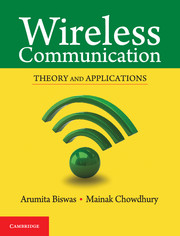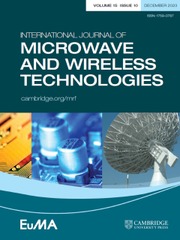Wireless Communication
Owing to the rapid developments and growth in the telecommunications industry, the need to develop relevant skills in this field are in high demand. Wireless technology helps to exchange the information between portable devices situated globally. In order to fulfil the demands of this developing field, a unified approach between fundamental concepts and advanced topics is required. The book bridges the gap with a focus on key concepts along with the latest developments including turbo coding, smart antennas, multiple input multiple output (MIMO) system, and software defined radio. It also underpins the design requirements of wireless systems and provides comprehensive coverage of the cellular system and its generations: 3G and 4G (Long Term Evolution). With numerous solved examples, numerical questions, open book exam questions, and illustrations, undergraduates and graduate students will find this to be a readable and highly useful text.
- Provides comprehensive coverage of different cellular systems and their generations up to 4G
- Offers extensive discussion of MIMO systems, cognitive radio and sensor networks
- Focuses on design requirements, governing principles and spectrum allocation
Product details
No date availableAdobe eBook Reader
9781316870747
0 pages
0kg
This ISBN is for an eBook version which is distributed on our behalf by a third party.
Table of Contents
- Figures
- Tables
- Preface
- Acknowledgements
- 1. Overview of wireless communication systems
- Part I. Fundamentals of Wireless Communication:
- 2. Modulation, coding, equalization, diversity
- 3. Resource allocation techniques
- 4. Spread spectrum technology
- 5. Antenna basics
- 6. Wave propagation
- Part II. Wireless Systems:
- 7. Cellular system
- 8. Global system for mobile [GSM]
- 9. GPRS and EDGE
- 10. 3G, HSDPA, HSUPA and LTE
- 11. Wireless LAN and WiMAX
- 12. Satellite communication
- Appendix A. Design and simulation of antenna for wireless communication
- Appendix B. Software defined ratio
- Appendix C. Cognitive radio
- Appendix D. Sensor network
- Appendix E. Trunking theory
- Acronyms
- Open book questions
- Hints for open book questions
- Solved examples
- Extra multiple choice questions
- Solutions to extra multiple choice questions
- Model question papers
- Glossary
- References
- Index.




